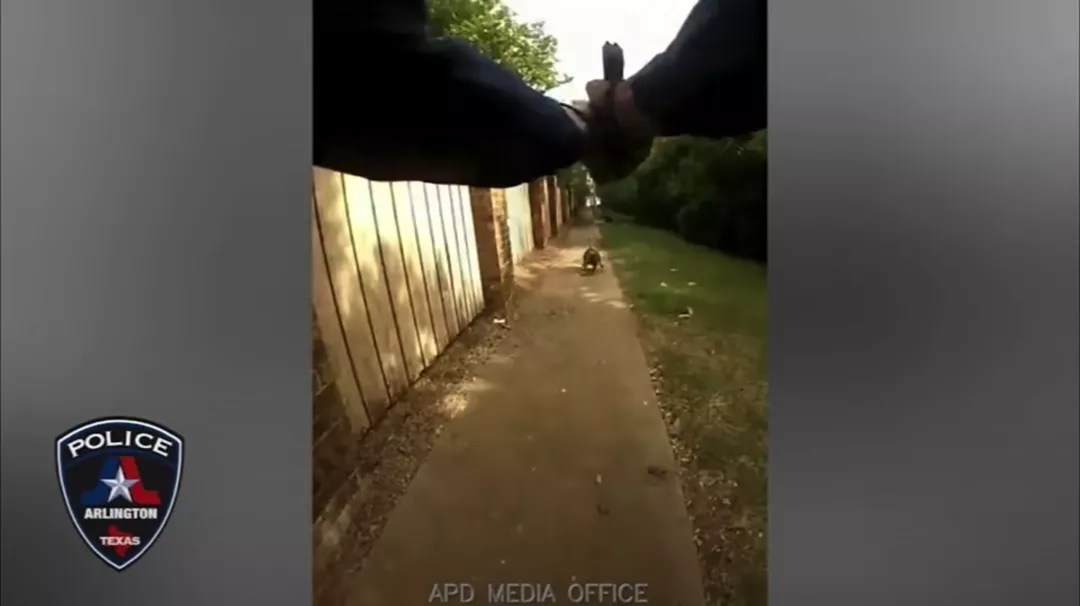
Arlington Police Department

Audio By Carbonatix
Late in summer 2020, a group of families from across the country gathered in Washington to discuss police brutality with then-President Donald Trump. Each family had recently had a son, daughter, parent or spouse killed by law enforcement.
Also at the table were representatives from a number of national and local police unions.
Trump and then-Attorney General William Barr talked through various police reform ideas with the families. Attorney Lee Merritt remembers that one North Texas case, in particular, seemed to snag everyone’s attention: that of Margarita Brooks, whom a police officer had killed in Arlington a year earlier.
“Her father’s a veteran,” Merritt said. “These were people who wanted to honor his service and thank him for what he’s done. People that identify him with the law.”
Merritt added, “Trump and the union members felt like Margarita’s case was a case that deserved justice.”
In August 2019, rookie Arlington Police officer Ravinder Singh shot and killed Brooks, who was homeless and struggling with schizophrenia, during a welfare check. Singh’s body camera footage shows him firing multiple shots in Brooks’ direction as her dog begins to run towards him.
The civil lawsuit filed by Brooks’ father – the much-lauded fireman and veteran at Trump’s meeting – in 2019 has reached a now-familiar juncture: eight days ago, the police union attorneys representing Singh filed a motion to dismiss the case based on qualified immunity.
“This is the rubber stamp, filed by police union attorneys filing the same motions that have been successful in the 5th Circuit court, but that’s just sort of a muscle reflex for the attorneys,” Merritt explained.
Merritt said legal arguments against qualified immunity for Singh will focus on whether his actions “shock the conscience” of the everyday observer.
“Singh had just gone through canine training, he knew what to do in that situation,” he explained. “His behavior deviates so substantially from what he was supposed to do, that it does in fact shock the conscience, that he leveled off shots in the direction of a pedestrian, with the intention to shoot a puppy. It was absurd.”
“Trump and the union members felt like Margarita’s case was a case that deserved justice.” – Lee Merritt, attorney
Singh’s attorneys couldn’t be reached for comment.
Qualified immunity is a legal doctrine that has protected public officials from civil and criminal litigation for decades. It has almost exclusively been applied to police officers in cases when they have wielded excessive or deadly force. The American Bar Association describes it: “Qualified immunity is a judicial doctrine created by the Supreme Court that shields state actors from liability for their misconduct, even when they break the law. Under this doctrine, government agents – including but not limited to police officers – can never be sued for violating someone’s civil rights, unless they violated ‘clearly established law.’ While this is an amorphous, malleable standard, it generally requires civil rights plaintiffs to show not just a clear legal rule, but a prior case with functionally identical facts.”
When Minneapolis police officer Derek Chauvin killed George Floyd in May 2020, it prompted renewed scrutiny of qualified immunity. Texas state lawmakers moved to push the George Floyd Justice in Policing Act during this year’s legislative session.
While other measures in the bill – a ban on chokeholds, and requiring officers to intervene if another cop is wielding excessive force, for instance – garnered bipartisan support, provisions targeting qualified immunity prevented the bill from passing.
Federal courts in Texas have time and again protected police officers from civil or criminal consequences for wielding deadly force in recent years.
When Gabriel Eduardo Oliva was experiencing a mental health crisis in Arlington in 2017, he doused himself in gasoline. The Arlington PD officers who showed up later acknowledged that applying electricity to Oliva could have set him ablaze, but they still shocked him with a taser. Oliva caught on fire and died of his injuries a few days later.
In February, a Texas federal appeals court loaded with conservative justices granted qualified immunity to the officers, relieving them of liability for their actions.